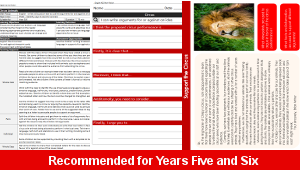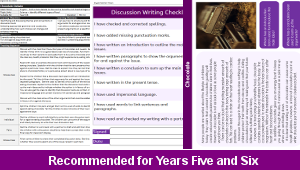Special Topics Teaching Resources
Discover some schemes of work, lesson plans, classroom worksheets and interactive activities to develop skills in all curriculum subjects in Key Stage Two covering a range of special days, celebrations and festivals across the school year

Bonfire Night
Investigate and illustrate the history and themes of Bonfire Night working across all curriculum subjects

Christmas
Practise and develop a range of skills in different curriculum subjects to celebrate and enjoy the festive season

Easter
Explore and present some of the themes and stories connected to Easter working across all curriculum subjects

Halloween
Develop and practise skills in all curriculum areas to celebrate and decorate the classroom for Halloween

New Year
Celebrate the start of a new year and select a range of personal and academic resolutions for the remaining two terms of the school year

Remembrance Day
Explore some of the themes and issues surrounding Remembrance Day to commemorate people who fought in the past

Shrove Tuesday
Understand and illustrate how and why Shrove Tuesday is celebrated in different communities around the world

Valentine’s Day
Understand and illustrate how and why Shrove Tuesday is celebrated in different communities around the world
- Circus AnimalsWrite a discussion text to outline some of the arguments for and against an animal welfare issue
- Chocolate DebateHold a class debate to identify and explain the benefits and disadvantages of eating chocolate
- Story SwapsPractise writing and editing an alternative version of a traditional story by swapping characters, settings and plot events
- Story Swap WritingDraft and edit an alternative version of a traditional tale to match the original text genre and style




